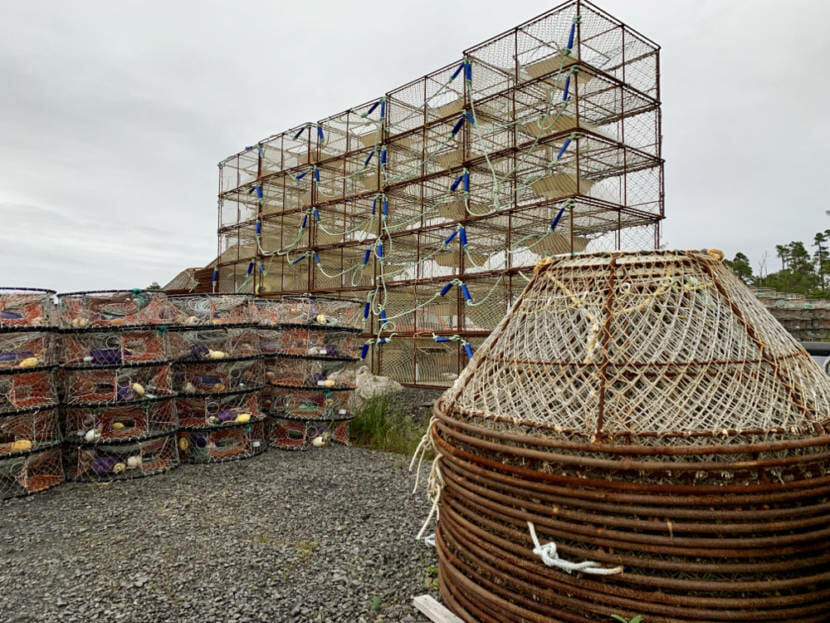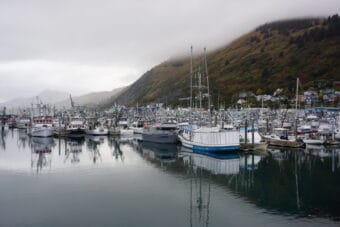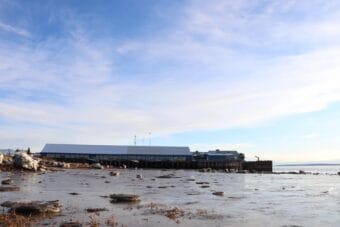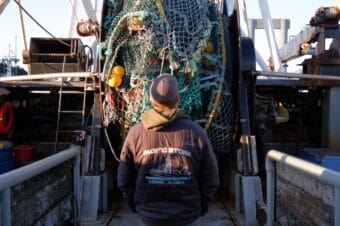
The Alaska Board of Fisheries has voted down a proposal that would have allowed for a limited harvest of red king crab in Southeast Alaska, where the fishery hasn’t been open for years.
The proposal was supported by both the Alaska Department of Fish and Game and fishermen.
Over the last decade, there’s been just one red king crab fishery in Southeast. That’s because the state’s estimations of crab stocks have repeatedly fallen short of the 200,000 pounds threshold. That number comes from surveys the state conducts in some areas.
The board was asked to consider a proposal that would create equal crab quota shares when the state’s harvest levels were too low for a regular competitive fishery, similar to equal share fisheries for sablefish in the region.
State managers and industry groups wrote the proposal together over several meetings.
Andrew Olsen coordinates the state’s crab management in Southeast. He presented the proposal to the board, saying it would allow for a limited harvest and give managers crab data they need. He said they could limit the fishery to areas where they don’t survey.
“We have no stock assessment survey in those non-surveyed areas, and [it would] allow us to see where other populations of red king crab and blue kind crab are, to get more informed on what the fishermen are seeing out in the field,” Olsen said. “Then we can integrate that into our stock assessment model to be more informed.”
Fishermen have repeatedly said there are more red king crab than managers are estimating.
The proposal would have lowered the harvest threshold to 88,000 pounds, giving permit holders equal amounts of crab to catch. That amount would change depending on the state’s yearly estimation. If the harvest level was above 200,000 pounds, management would return to a competitive fishery. The proposal would have expired in three years, unless renewed by the board.
It also would have allowed multiple permit holders on a vessel fishing together. And it would limit the amount of harvest per trip and how long trips last.
The crab proposal was backed by several regional industry groups: the Southeast Alaska Fishermen’s Alliance, the King and Tanner Task Force and the Petersburg Vessel Owners Association, which together represent hundreds of fishermen.
The price of red king crab has gone up in recent years, and fishermen say it’s worth fishing for a small set harvest. The last opening paid over $10 per pound.
Max Worhatch is a fisherman from Petersburg.
“I think it’s a good idea to do this. I think it’s going to give some economic activity, and it will be warranted,” Worhatch said. “It’s a slow fishery — it shouldn’t do any harm.”
The current management plan has different harvest goals for different areas, and fishermen can choose where they want to go.
Fish and Game’s Olsen told the board it’s hard to manage that way because of the bays and inlets that make up Southeast.
“The fishery goes very fast,” Olsen said. “Our past fisheries in those survey areas have been 24 hours, which makes it very fast. So, at a lower level, to slow it down, equal quota share will allow us to manage more effectively and precise by being able to have that tool in place.”
He said the bays and inlets have genetically distinct populations of crab, and they need more data on them.
Slowing the fishery down was a sticking point for some board members, who said it could be gained by other means, like reducing gear.
Board member Israel Payton of Wasilla suggested they limit permits to 10 pots, for example. He spoke against the idea of quota shares like those used in the federal managed halibut fishery.
“I think the board is defaulting, turning some of these fisheries into basically, setting policy, and turning them into a quasi-IFQ fishery,” Payton said.
Board member Gerad Godfrey of Eagle River spoke in favor of a free market and against quota shares, in general.
“I personally believe in the spirit of competition and not necessarily the egalitarian approach of ‘let’s just equalize it,’” Godfrey said.
Board Chair Märit Carlson Von-Dort of Anchorage said she didn’t like the idea of quota shares but could support the proposal because it was temporary and the state could gain data.
“I do think that information gathered through the fleet for a discreet amount of time — that being a period of three years — may be useful to the department,” she said.
The proposal was ultimately voted down, 3-2. Payton, Godfrey and John Wood voted against it, while Carlson Von-Dort and McKenzie Mitchell supported it. One Board of Fish member, John Jensen of Petersburg, recused himself, and one board seat is vacant.


